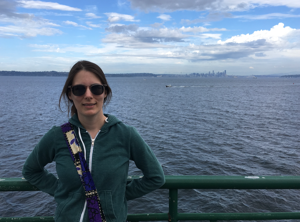I explore creativity and ask whether computers are capable now, or in the future, of producing creative works. I focus on creativity in musical composition, and within this field I focus on the work of David Cope at UC Santa Cruz. He has developed a program, Experiments in Musical Intelligence (EMI) that can take the works of a given composer and produce new works in that style.
I look at various definitions of creativity and methods people have used to study creativity over the years. Then I go to some composers and see what they think of EMI’s music. I take a look at the algorithms under EMI’s hood, and look at other algorithms people have used to compose music. I review other fields where algorithms have been applied to creativity, and see if any of these algorithms resemble how humans actually think. Then I test the definition of creativity as unconscious calculation and talk to the chess AI experts behind Deep Blue and other chess software.
Finally, I discuss the importance of embodied cognition and what it means to understand something. I conclude that computers cannot be creative because they don’t understand the meaning in what they do.





